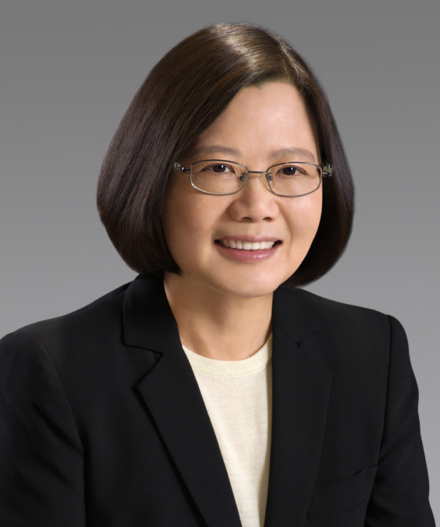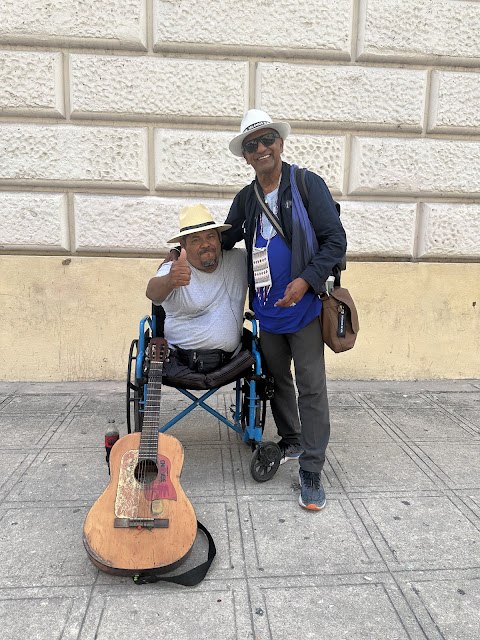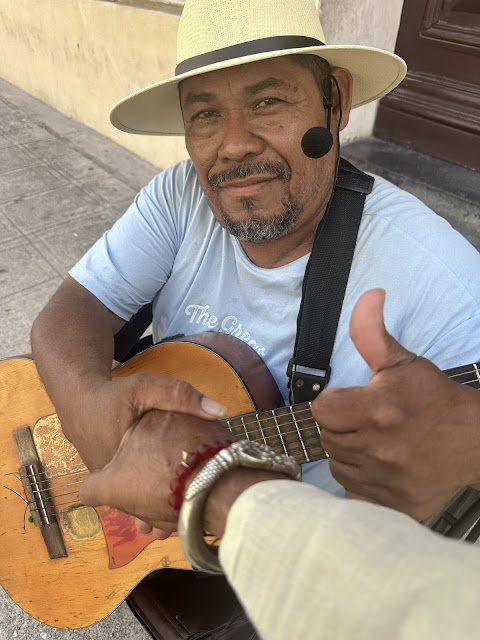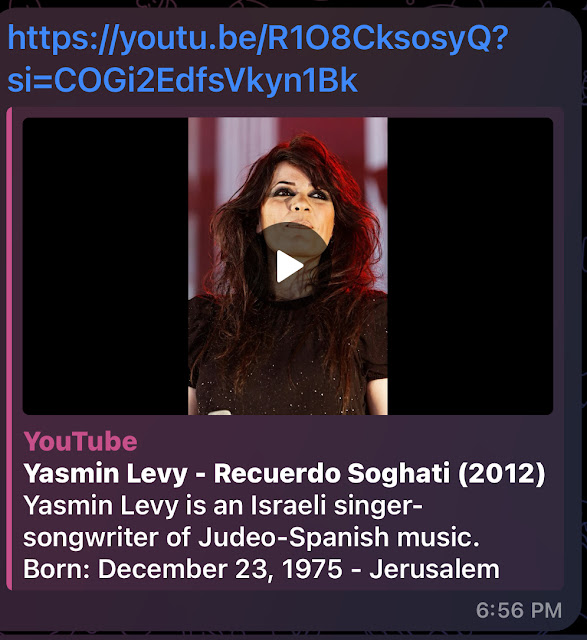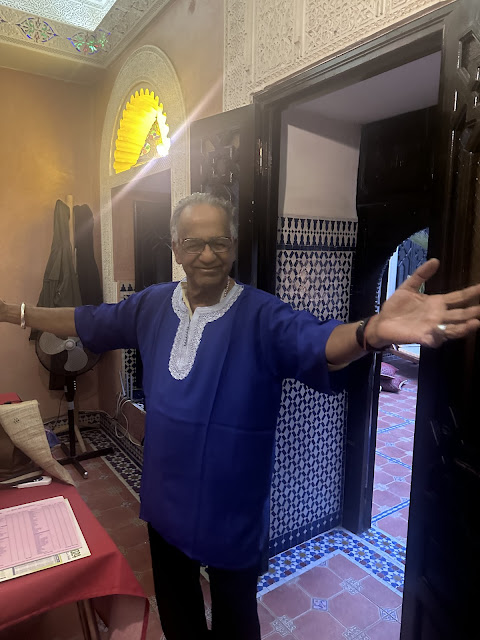Dr. Yehuda Kovesh leaned against the worn wooden railing of his clinic's veranda, staring out at the bustling streets of the coastal town of Baracoa. The salty breeze carried whispers of stories from the sea, mingling with the aroma of brewing coffee from the nearby café. For Yehuda, each dawn brought a new tide of patients and mysteries, but today, his thoughts were elsewhere.
He was renowned in Baracoa not only for his medical expertise but for his unyielding curiosity about life's deeper currents. The shelves of his clinic were lined not only with medical texts but with volumes of philosophy, poetry, and tales of far-off lands. Yet, despite the richness of his intellectual pursuits, Yehuda felt a disquiet gnawing within him—an itch of questions unanswered and paths unexplored.
It was in this state of contemplation that he first noticed the peculiar glow emanating from the old banyan tree at the edge of town. Baracoa was known for its eccentricities, but this was different. The tree seemed to pulse with a soft, ethereal light that flickered like fireflies trapped in amber. Yehuda could not resist its pull.
That evening, as the town slept under a blanket of stars, Yehuda ventured to the tree, his steps guided more by curiosity than caution. The air around the banyan was charged with an otherworldly energy, and Yehuda found himself drawn into its embrace.
Under the canopy, amidst roots that twisted like forgotten memories, Yehuda discovered a hidden alcove—a library, its shelves lined with books bound not in leather but in whispers of wind and sighs of the sea. Each volume held stories of lives touched by magic, of healing beyond the grasp of medicine, and of questions that dared to defy answers.
As he read, Yehuda felt the disquiet within him begin to shift. Here, amidst the pages woven with threads of enchantment, he found echoes of his own journey—a quest not just to heal bodies but to understand the soul's yearning for meaning. In these tales, Yehuda glimpsed the interconnectedness of all things—the pulse of the universe beating beneath the mundane rhythms of daily life.
With each page turned, Yehuda felt himself unraveling, shedding the weight of uncertainty that had burdened him for so long. The banyan tree whispered secrets of existence—of the beauty found in fleeting moments and the wisdom gained from embracing the unknown.
And so, as the first light of dawn kissed the horizon, Yehuda Kovesh emerged from the alcove, his eyes alight with newfound clarity. The disquiet within him had not vanished entirely, but it had transformed into a quiet resolve—a commitment to seek meaning not in answers alone, but in the ceaseless journey of questioning
El Dr. Yehudá Kovesh se apoyaba en la barandilla gastada de la veranda de su clínica, observando las bulliciosas calles del pueblo costero de Baracoa. La brisa salada traía susurros de historias del mar, mezclándose con el aroma del café recién hecho de la cafetería cercana. Para Yehudá, cada amanecer traía una nueva marea de pacientes y misterios, pero hoy, sus pensamientos estaban en otro lugar.
Era conocido en Baracoa no solo por su pericia médica, sino por su incansable curiosidad sobre las corrientes más profundas de la vida. Las estanterías de su clínica estaban llenas no solo de textos médicos, sino de volúmenes de filosofía, poesía y cuentos de tierras lejanas. Sin embargo, a pesar de la riqueza de sus intereses intelectuales, Yehudá sentía una inquietud que lo carcomía: una comezón de preguntas sin respuesta y caminos sin explorar.
Fue en ese estado de contemplación que primero notó el resplandor peculiar que emanaba del viejo árbol de baniano en el borde del pueblo. Baracoa era conocida por sus excentricidades, pero esto era diferente. El árbol parecía palpitar con una luz etérea y suave que parpadeaba como luciérnagas atrapadas en ámbar. Yehudá no pudo resistir su llamado.
Esa tarde, mientras el pueblo dormía bajo un manto de estrellas, Yehudá se aventuró hacia el árbol, sus pasos guiados más por la curiosidad que por la precaución. El aire alrededor del baniano estaba cargado con una energía de otro mundo, y Yehudá se encontró atraído hacia su abrazo.
Bajo el dosel, entre raíces que se retorcían como recuerdos olvidados, Yehudá descubrió un recoveco oculto: una biblioteca, sus estantes llenos de libros encuadernados no en cuero, sino en susurros de viento y suspiros del mar. Cada volumen contenía historias de vidas tocadas por la magia, de sanación más allá del alcance de la medicina, y de preguntas que desafiaban a desafiar respuestas.
Mientras leía, Yehudá sintió cómo la inquietud dentro de él comenzaba a cambiar. Aquí, entre las páginas tejidas con hilos de encantamiento, encontró ecos de su propia jornada: una búsqueda no solo para sanar cuerpos, sino para entender el anhelo del alma por el significado. En estos cuentos, Yehudá vislumbró la interconexión de todas las cosas: el pulso del universo latiendo bajo los ritmos mundanos de la vida diaria.
Con cada página girada, Yehudá se sintió desenredándose, desprendiéndose del peso de la incertidumbre que lo había cargado durante tanto tiempo. El árbol de baniano susurraba secretos de la existencia: la belleza encontrada en momentos fugaces y la sabiduría ganada al abrazar lo desconocido.
Y así, cuando los primeros rayos del amanecer acariciaron el horizonte, Yehudá Kovesh emergió del recoveco, sus ojos iluminados con una claridad recién encontrada. La inquietud dentro de él no había desaparecido por completo, pero se había transformado en una firme resolución: un compromiso de buscar el significado no solo en respuestas, sino en el incesante viaje de la pregunta.
El Dr. Yehudá se preguntaba sobre las fragilidades de las relaciones humanas y su infelicidad. ¿Dónde buscaría él respuestas?
El Dr. Yehudá Kovesh, inmerso en su búsqueda interior sobre las fragilidades de las relaciones humanas y su infelicidad, se embarcó en una exploración que lo llevó más allá de los confines físicos de Baracoa. Decidió buscar respuestas en lugares insólitos: en los relatos ancestrales de los pueblos originarios de la región, en los sueños y visiones que visitaban a sus pacientes durante la noche, y en las sutilezas del mundo natural que rodeaba su clínica. También se sumergió en los escritos de filósofos antiguos y contemporáneos que exploraban la complejidad del alma humana y las interacciones interpersonales. Sin embargo, su búsqueda más profunda lo llevó a explorar dentro de sí mismo, en los recovecos de su propia experiencia y emociones, donde esperaba encontrar respuestas que resonaran con la verdad universal sobre el amor, la conexión y la felicidad verdadera.

